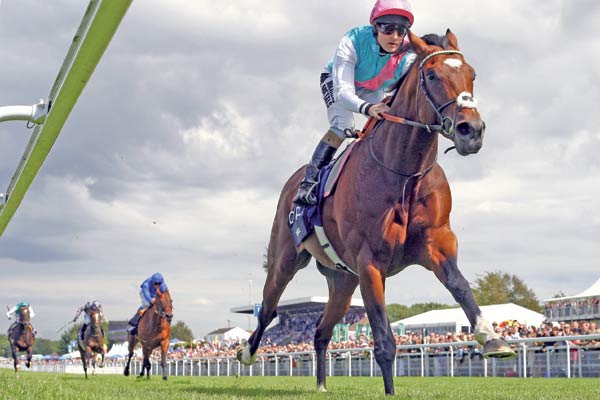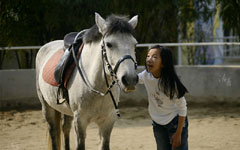 |
|
The lack of legal betting avenues is one of the key obstacles hindering the development of racing in China. CHINA DAILY |
Horseracing has great potential in China, but crucial changes are needed before the industry can thrive, says Louis Romanet, chairman of the International Federation of Horseracing Authorities.
China's ban on legal betting on racing and lack of a central breeding and racing organization that regulates the industry are key obstacles, he says.
The federation, founded in 1993, works to protect the integrity of races and helps improve the quality of breeding.
It grew out of efforts by authorities in the United Kingdom, France, Ireland and the United States since 1961 to work together to ensure the integrity of races.
Romanet says a few Chinese horseracing associations have asked the federation about membership, but they still do not fulfill the criteria to join. But the federation is keen to work with them to improve their ways of working and welcomes their membership in the future.
 |
 |
In France, about 10 billion euros is wagered on horseracing each year, 25 percent of which is shared between the government and the racing industry. The rest is returned to bettors.
Of the funds retained, 40 percent is given to the government, 40 percent to the racing and breeding industries, and the rest is used to cover the administrative costs.
The government revenue is then used to improve agriculture, and to regulate the horseracing industry. Consequently, the industry supports about 100,000 jobs.
"In China, I think betting will have to come sometime, but before that you need a central authority representing the government that can be in charge of controlling the programs and coordinate the activities," Romanet says.
In China, there are about 15 racecourses, but there is a lack of a recognized central authority to establish rules and police them, and this is a crucial step for betting to be established properly, he says.
Like China, Middle Eastern countries do not allow betting on races, and some industry insiders say China should follow that model, but Romanet disagrees.
The horseracing industries in those countries are supported by royal families or other extremely wealthy families, and it is an unlikely model for China, he says, so allowing betting is the only way to resolve the issue.
One possible first step in allowing betting would be to permit offsite betting on international races, when Chinese could place bets on highly regulated international events so they can become familiar with the process of betting, Romanet says.
A proportion of this revenue could go to the government, and it would be able to invest in the growing industry.
"This is the quick way, because if you wait until the organization is developed it may take a lot more time."
Another hurdle for China is that the World Organization for Animal Health is yet to declare the country disease free.
Chinese horse buyers are increasingly coming to Europe for their purchases, Romanet says, and many leave them there for training and competition. This will also build their knowledge of owning horses, and they may later take their horses to China, Romanet says.
Another increasingly popular way for Chinese to own horses overseas is to buy shares in a horse, as is the case of China Horse Club buying 10 percent share in "Australia", a horse majority owned by Coolmore farm of Ireland.
China Horse Club, headed by Malaysian tycoon Teo Ah Khing, will benefit from winnings of "Australia", as well as the increase in the horse's value. "Australia" won the Derby at Epsom, one of the biggest events on the horseracing calendar, this year.
Romanet says he is sure about the market potential in China, and that the French model of having a non-profit organization to regulate the horseracing industry is apt for China.
"In France, having a nonprofit model means all revenue is invested back in the industry. It is a popular system for the people and the government."
